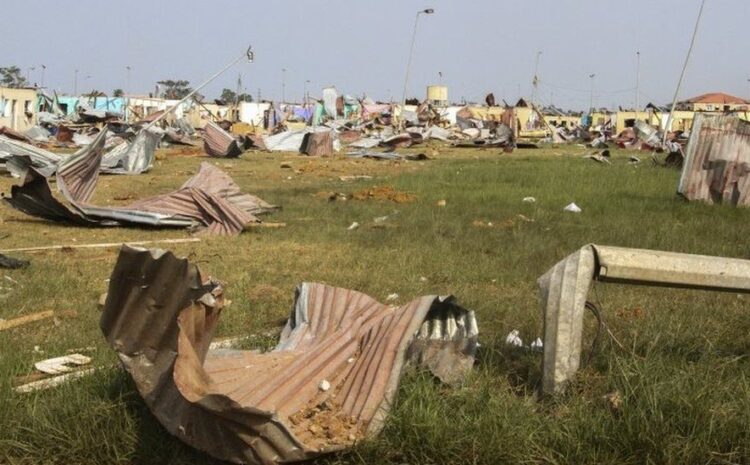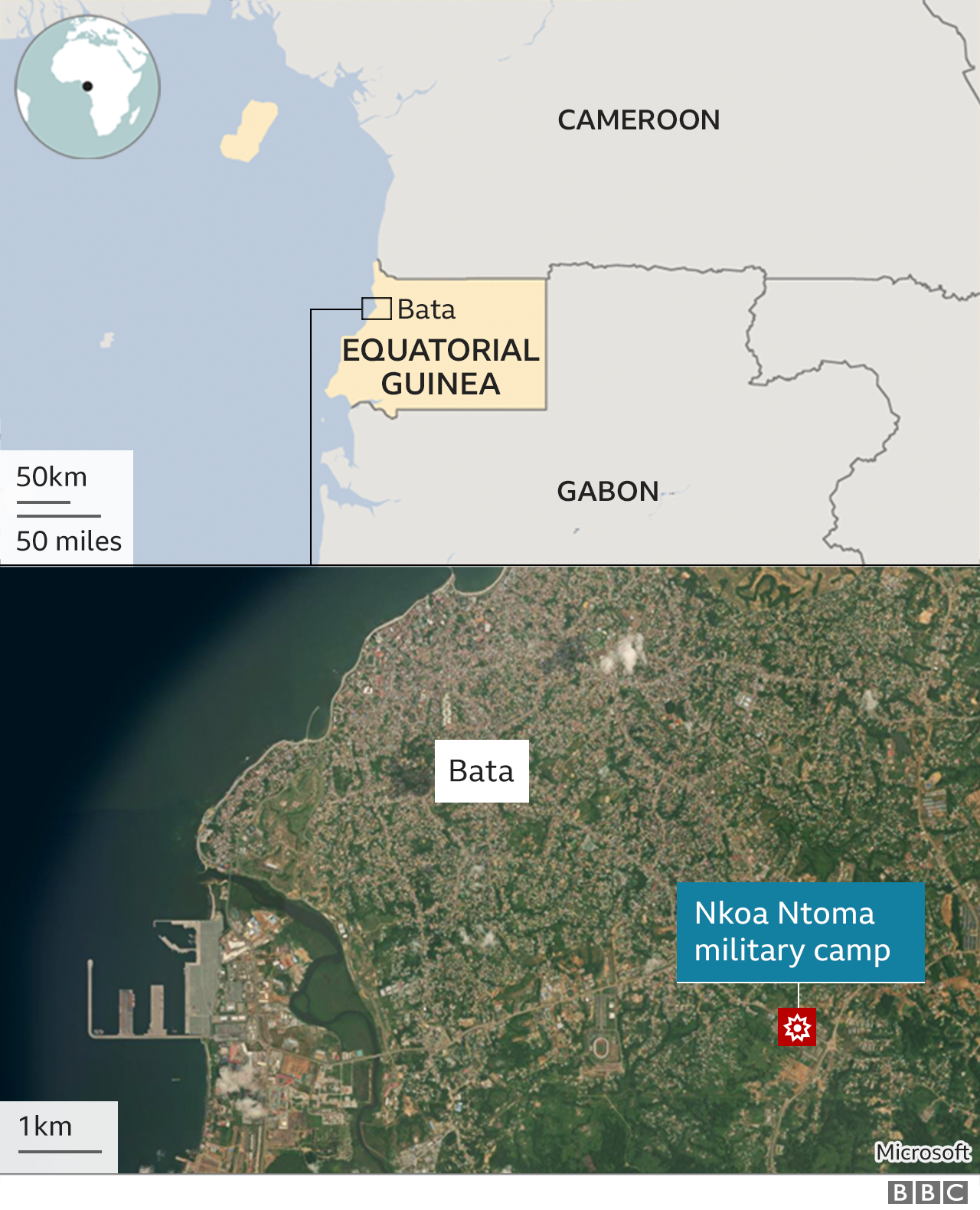
EPA image captionThe blasts scattered debris across a wide area
The blasts hit a military base in the country’s main city, Bata. Officials blame badly stored dynamite along with stubble burning by nearby farmers.
Teams including volunteers continue to search the wreckage of buildings and homes for victims.
Three young children were found alive and taken to hospital.
Local media showed a row of covered bodies along a street.
There are fears the death toll could rise further as some victims may still be trapped.
In a statement, President Obiang Nguema said the blasts had been caused “by the negligence of a unit charged with the care and protection of stores of dynamite and explosives” at the Nkoantoma military base.
He said the base had “caught fire due to neighbouring farmers clearing farming land by setting it alight, leading to the explosion”. The president has appealed for international aid.
In a series of tweets, the health ministry called for volunteer health workers to go to Bata Regional Hospital and for urgent blood donations. The ministry said mental health teams were also being deployed to help victims.
Some hospitals have been overwhelmed by the number of patients admitted, state TV reported. It broadcast images of wounded people lying on the floor of a crowded hospital.
Video of the aftermath of the explosions showed a chaotic scene with distressed people fleeing as smoke drifted over the area.
Another described how his uncle had found the burned bodies of five members of his family.
The only opposition party, the CPDS, described the blasts as “the greatest humanitarian catastrophe in the history of Equatorial Guinea” and called on Spain, France and the United States to send aid, including rescue teams, medical staff and medicines.
The Spanish embassy said its nationals should remain at home and issued a series of emergency numbers.

Five things about Equatorial Guinea:
- Africa’s only Spanish-speaking country, it gained independence from Spain in 1968
- It is divided between the mainland and an island, where the capital, Malabo, is located
- President Obiang Nguema, in power since 1979, has been repeatedly accused of human rights abuses
- Western officials and NGOs have also accused the president and his family of massive corruption
- Despite riches in oil and gas, 76% of its 1.5 million people live in poverty, according to the UN and World Bank.

